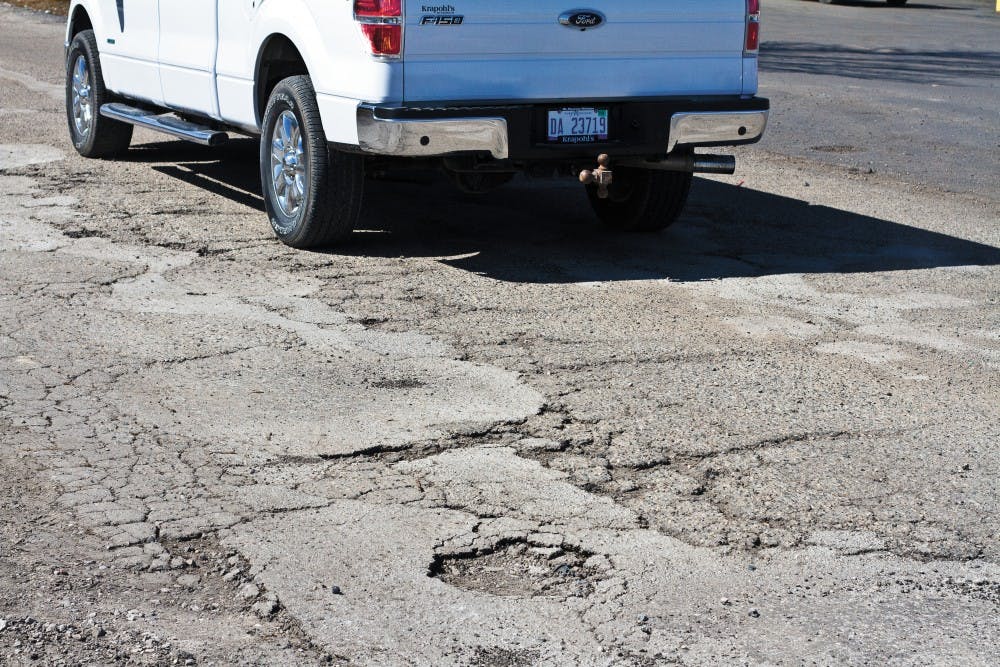New road repair proposal enacts controversial legislation along with tax increases
Proposal 1 for Safer Roads, which appears on the May 5 election ballot, will raise the state's sales tax from 6 percent to 7 percent.
The sales tax increase, plus increases on vehicle registration fees, will raise $2.1 billion by the end of fiscal year 2015-16. About $367.8 million will fund state and local road repairs.
While many legislators and voters agree on the need to fix Michigan roads, Proposal 1 has 10 other pieces of legislation attached to it. Some of the money allocated to road repairs will be used to pay off existing repair debt.
Nuts and bolts of Prop 1
The largest impact of Proposal 1 is an increase in the state's sales tax. This is being done because sales tax is one of the only sustainable revenue sources available, said Mount Pleasant City Commissioner Jon Joslin. Sales tax is also a guaranteed funding source because it effects everyone in the state, including visiting tourists.
Proposal 1 also eliminates the state's gasoline and diesel fuel use tax. Gas and diesel taxes were given to road repairs, but at a flat rate of 19 cents per gallon. House Speaker Kevin Cotter told Mount Pleasant City Commissioners the tax was not protected against inflation and fluctuating gas prices.
Money from the tax increases will bolster the School Aid Fund, which supports public school districts, employee retirement funds, community colleges and vocational schools. Increases to the SAF was a sticking point for Democratic legislators.
Prop 1's fiscal impact
Legislators and a non-partisan analysis group have projected Proposal 1's fiscal impact over the next three years. All of the tax increases will go into effect on Oct. 1, the beginning of the state's fiscal year.
Total revenue is expected to reach $2.1 billion in 2015-16, but is expected to decline to $1.8 billion in 2016-17. Revenues will increase to $1.9 billion in 2017-18.
Providing $367.8 million for road repairs in 2016, that amount is increases to $736.6 in the second year. In 2017-18, $1.3 billion will fund road work.
Other state funds will see increases, including the Recreation Improvement Account, the Comprehensive Transportation Fund, the School Aid Fund and the state's general fund.
Schools and programs funded by the SAF receives $292.4 million in 2016, but would decrease to $220 million in following years.
A general fund increase of $463.1 million is set for 2016 and decreases to about $171 million in following years.
Controversy and 'ornaments'
Opponents of Proposal 1 have expressed concern about the proposal because of its attached tax increases.
These increases come in the form of attached legislation that will only go into effect if Proposal 1 passes. There are 10 pieces of legislation attached.
Cotter said this was done to garner the type of bipartisan support to get Prop 1 on the ballot. Both houses needed a 2/3 up vote to even put it in front of voters.
Similar measures for tax increases to fund road repairs were floated before state legislators in 2012 but failed to receive support.
Proposal 1 is considered at this time the only plausible way to get road funding passed. Because the sales tax increase needs to go before the voters, Cotter said this couldn't be passed as piece of legislation.
The last sales tax increase was passed in 1994. It increased the sales tax from 4 to 6 percent.





